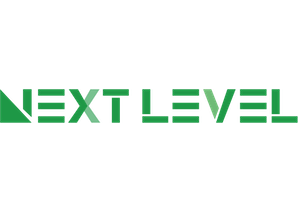The Path to Funding: Why Business Performance and Personal Finances Are Key for SMMEs Seeking Bank Loans
Caption:
Jenine Zachar, Head of Client Value Propositions &
Client Experience at Standard Bank Business &
Commercial Banking South Africa.
📷 SUPPLIED
For SA’s small, medium, and micro enterprises (SMMEs), access to funding can be a catalyst to drive growth and manage cash flow. But as Jenine Zachar, Head of Client Value Propositions & Client Experience at Standard Bank, explains, successful funding applications require more than just financial need. A lot goes into considering the approval or decline of loan applications. However, SMME owners must focus on three key areas to improve chances of loan approvals:
-
1. They must ensure their personal and business accounts
are in good standing. Payments must consistently going
through to avoid accounts becoming overdrawn, and debit
orders not being honoured.
-
2. Their businesses must show ability to consistently
generate sales.
-
3. Their businesses must also demonstrate profitability
and ability to service debt over time.
Standard Bank, founded in 1862 from humble beginnings in Gqeberha, has grown to be one of Africa’s largest lenders. Today, the bank serves more than 500 000 active business clients in South Africa alone. Many of these businesses have grown through well timed credit funding. However, both new and established businesses do not fully understand the criteria that modern banks utilise to determine the risk associated with lending and the ability of the businesses to repay loans.
Funding for Day-to-Day Operations
Standard Bank’s data shows that working capital is the primary funding need for SMMEs with overdrafts making up 40% of new loans in this sector, while revolving credit accounts comprise another 25%. Working capital is crucial for day-to-day operations, enabling businesses to manage cash flow, purchase inventory, and meet operational expenses.
“Historically, a large bank such as Standard Bank may have been viewed as a source of large capital loans when starting up the business or expanding infrastructure. However, we now make use of sophisticated models that leverage past performance and behaviour as well as a future focussed view to accelerate and simplify the granting of short and long term credit,” says Zachar.
Essential Planning for Loan Approval
To maximise their chance of accessing credit, it is important for SMMEs to have a well-defined business plan that outlines the nature of their business, their standout features or products compared to competitors in the field, their target market, and the skills needed to manage operations. As a business evolves, this plan will include cash flow forecasts, income projections, and a breakdown of funding needed to meet business goals.
Zachar notes, "The primary reasons for declines are low credit scores and affordability constraints as well as requested amount exceeding the bank's maximum lending capacity for a client against the business' track record."
She says a well thought out business plan will often aid the business in determining funding requirements that are more in line with the banks' lending criteria.
The link between business and personal finances has also become a key factor. According to a 2022 report from the OECD, only 34% of South African SMMEs use formal business accounts, with many owners using personal accounts for business purposes. This practice increases personal debt risk, negatively affects both the business and personal credit profiles and can result in funding declines. As a business looks to grow, no matter how small, its often a smart move to separate business and personal accounts.


